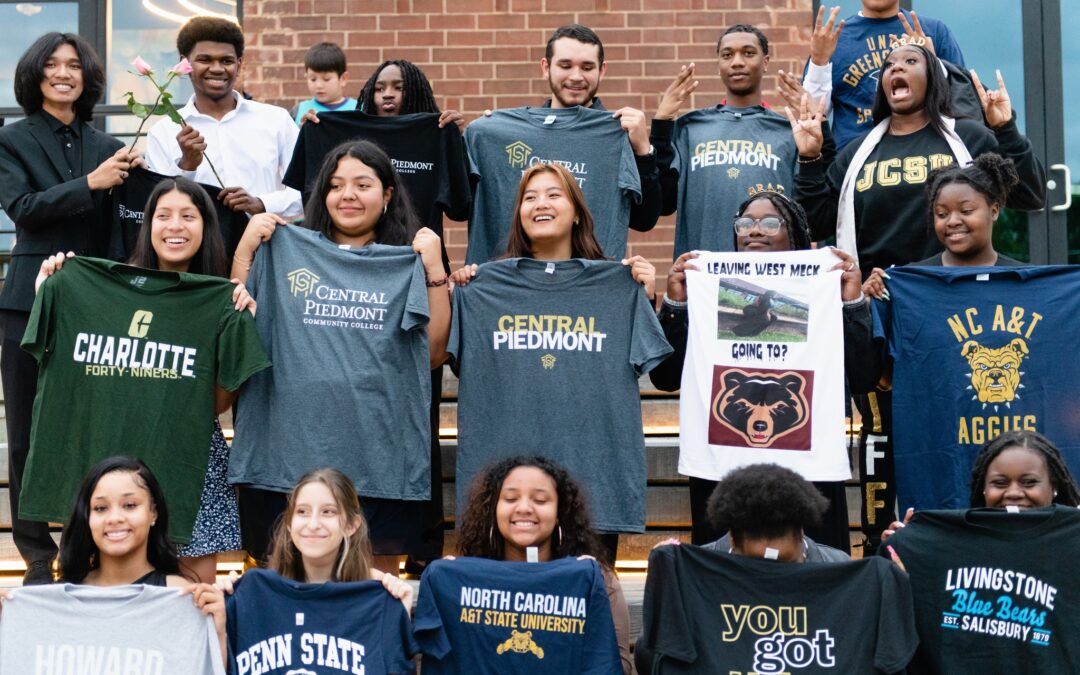UrbanPromise Charlotte (UP) is a nonprofit that provides youth and students the spiritual, academic and social development necessary to help them become strong leaders and invest back into their communities. Nearing their 10th anniversary, UP has experienced rapid growth that has led to flourishing communities of students. Over the last several years, they have added to their staff and site locations and have reimagined their programming to meet the increasing needs of families during and after the COVID-19 pandemic.
As the organization moved out of its pandemic framework, UP knew it needed a plan that would provide long-term sustainability for its families and staff. Rather than expanding programming, the team aimed to deepen programming, investing more into its long-term model of ‘reaching a child, raising a leader, and restoring a community.’
Ensuring All Voices Were Heard
The organization has a thriving, diverse community of students and families in four key areas of the city. “It was critical to our team that all of these voices would be part of our planning process,” said Jimmy McQuilkin, Executive Director of UrbanPromise Charlotte. “We wanted to know that every single member of our community – from elementary schoolers to parents – had input and buy-in to where we’re going as an organization.”
Next Stage partnered with UP to design a Community Voice plan that would maximize stakeholder engagement and ensure that staff, families, students and alumni all had meaningful dialogue throughout the process. This included a survey, individual interviews and a range of focus groups completed in both English and Spanish.
“There were meaningful themes that emerged during this process, including a desire to deepen programming and strong community buy-in,” noted Helen Hope Kimbrough, Senior Director of Community Voice at Next Stage. “The UP stakeholder process was unique due to the breadth of stakeholders. The team was so intentional about including ALL of their community in the process, including students, alumni, parents, staff, donors and corporate partners.” This intentionality brought a depth to the strategic plan and showed consistency among diverse stakeholders, presenting themes that centered around mental health, academics, Alumni support and attention to the 20-year journey of UP students.
The stakeholder process validated that UP’s intention to deepen their already robust programming would be embraced by their community.
A Plan Designed to Deepen Impact
Stakeholders throughout the process consistently expressed a desire to see UP deepen its programming, versus focusing on expansion. The UP model is unique due to its long-term relationships with students and families. “In many cases, a student begins attending our AfterSchool Program as an elementary school student, then later joins our StreetLeader program as a high schooler. In the last few years, we’ve seen the first of our StreetLeader Alumni graduate college and come back to the community for full-time jobs,” said McQuilkin. It is this holistic approach that appeals to UP’s supporters. More long-term data around college access and attainment is also an appealing quality to funders.
The team centered around this value proposition as it developed a three-year plan for increased academic, mental and social supports for students and staff, as well as an expanded base of resources to help deepen programming. “Ultimately, our desire is to be embedded in community and with students and their families,” notes McQuilkin. “This strategic plan targets the deep, long-term structure of our programming and will help establish the supports to help our students achieve success – then reinvest into our community.”
Urban Promise Charlotte about Next Stage
“Next Stage went above and beyond to really make sure that our stakeholders were heard – and we had a lot of them. We were very comfortable with the care that Helen and the team took to make sure that our community was well taken care of throughout the process.”
